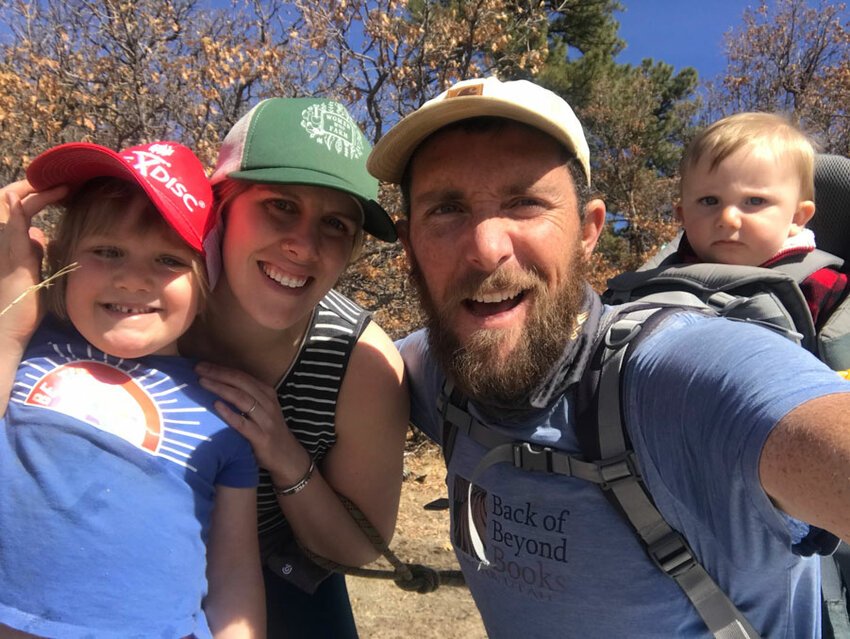
Chris Frederics and his family.
By Rose Chavez | Food System/Food Equity Coalition
The Archuleta County Nutrition Security and Health Equity Assessment which kicked off in December 2021 is continuing its ongoing work to engage the community through a Community Learning and Leadership Circle (CLLC) that meets on a weekly basis.
The CLLC is made up of a group of diverse Archuleta County community members who are committed to contributing to the design of the assessment during this first phase of the project, which will conclude at the end of June.
CLLC members engage in learning through module presentations facilitated by Healthy Archuleta and partner organizations about the concepts of nutrition security and health equity.
On a weekly basis, the CLLC members helped inform the assessment as it relates to 1) primary/preventive health care access and utilization (coverage, timeliness, workforce and services) and 2) bolstering our community-based food system (food production, food transformation, marketing and distribution, getting and preparing food, eating nutritious foods, food safety, food waste prevention and resource recovery).
A community-based participatory approach is used to capture people’s voices and lived experiences related to access to food and primary/preventive health care in Archuleta County. Additionally, both food and health care organizations will have the opportunity to share information as it relates to primary/preventative health care and food efforts.
Healthy Archuleta is sharing individual profiles of CLLC community members who are serving their community in this capacity. This week we are featuring CLLC member and community leader Chris Frederics:
1. Health is the new wealth. What does that mean for you and your family’s health in Archuleta County? “Wealth is related to education and those that have access to all different types of education are better prepared to know what to eat and how to eat. As a farmer and an educator, I have tried to grapple with the idea that locally produced food and organically grown food is more expensive. It has to be for small producers to make a living wage. That generally means that healthy food has to go through a different channel, with more obstacles, to find itself on the plates of low income families. It is important to have good food and food that reflects your culture. Big box groceries are unable to provide culturally relevant food to all consumers. Small scale producers are able to provide both but tend to sell their products at farmers markets, restaurants, through CSA members, which all are more expensive ways of eating. Eating healthy food requires sacrifices and some may simply not be able to make those sacrifices without aid.”
2. What are your ties to Archuleta County? “Our family is fairly new to Archuleta County but both my wife and I are multigenerational Coloradans. We have both had a lifelong love of the mountains. We are eager to bring our farm to Archuleta County. We find this lifestyle to be good for our children and intend to help grow the community in a positive way.”
3. What do you see as your role on the CLLC for the Nutrition Security and Health Equity Assessment? “I am a member of the community in Archuleta County. My experiences teaching, farming and working in public services will help me bring that perspective to the group. As we collect information from the community and take action toward a better food system, I hope those perspectives will be helpful. Democracy works best when many people, with different perspectives, work together towards a better future. I think we have that in the CLLC.”
4. What is your vision for a healthy Archuleta? “I would like to see a more diverse set of producers. If there were more farmers and producers with diverse skill sets, we could get closer to having a more robust local food system. I would like to see an influx of young producers and a stronger connection between them and the generational producers. With a larger quantity of locally produced food we could start making significant inroads to a more equitable food system. There are a number of diverse populations, with histories in this area, that could work together and advance the health of Archuleta County. I am optimistic that it could happen.”
5. What do you think is critical about the dynamics of learning and leading on the CLLC for this assessment? “I think it is important for leaders to also model learning. I hope that our group leans in on listening to one another. If each of us broadens our understanding of various lived experiences we stand a better chance of making a more just food system.”
For more information, please contact us at fsfearchuleta@gmail.org or (401) 371-3227. To donate to support the work of Healthy Archuleta, doing business as the FSFE-Food Coalition, please visit: https://www.foodcoalition4archuleta.org/donate.html.